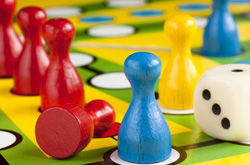Mind games
The games we play, from board games to guessing games, are a source of learning for the mind. The EU-funded project 'Learning across games' (LAG) investigated game theory, particularly how the mind categorises decision issues according to their similarity across different games. It also studied how this categorisation affects standard predictions in game theory. General game theory claims that people endogenise the question of categorisation and assumes that categorisations can be learned. However, the project showed flaws in game theory once the issue of categorisation is introduced. Based on this, it conducted several experiments in gaming to reveal a natural explanation regarding learned categorisations. LAG published a paper titled 'Learning across games' which showed that distinguishing all games requires too much reasoning resources, causing players or agents to partition the games into categories. In another paper titled 'Learning without counterfactuals', the project examined learning procedures when counterfactuals (payoffs of non-chosen actions) are not observed. It showed how decision makers update their propensities after every payoff experience and transform them into choices, representing a set of natural axioms. another experiment on learning in a multiple games environment examined how players make decisions if faced with many randomly generated games. It found that while agents extrapolate between games, they learn to play strategically equivalent games in the same way. These trials and conclusions, in addition to a host of others gleaned from the project, have helped increase the understanding of gaming theory, choices and learning in a gaming environment.







